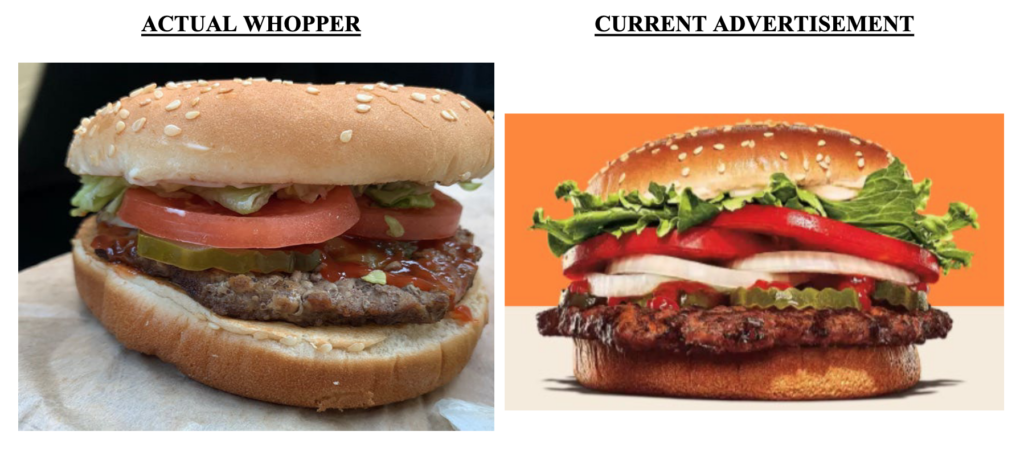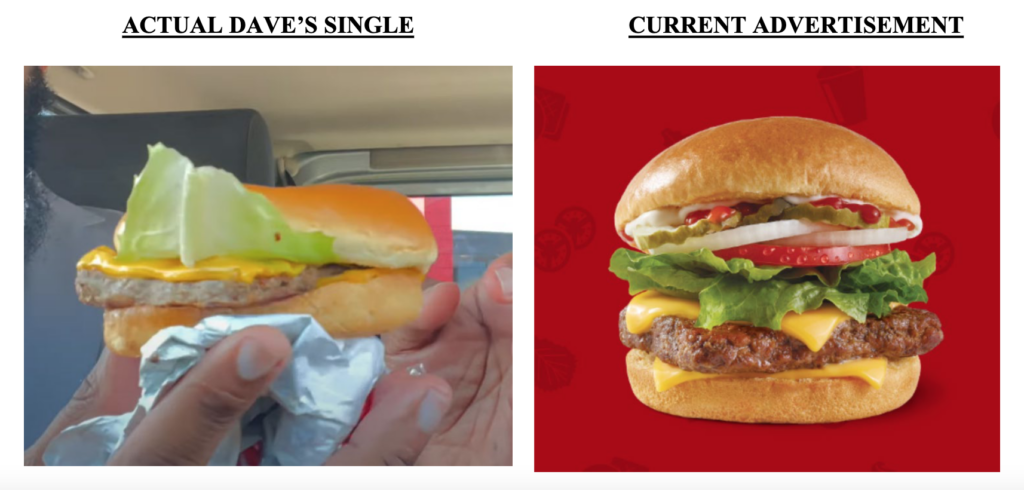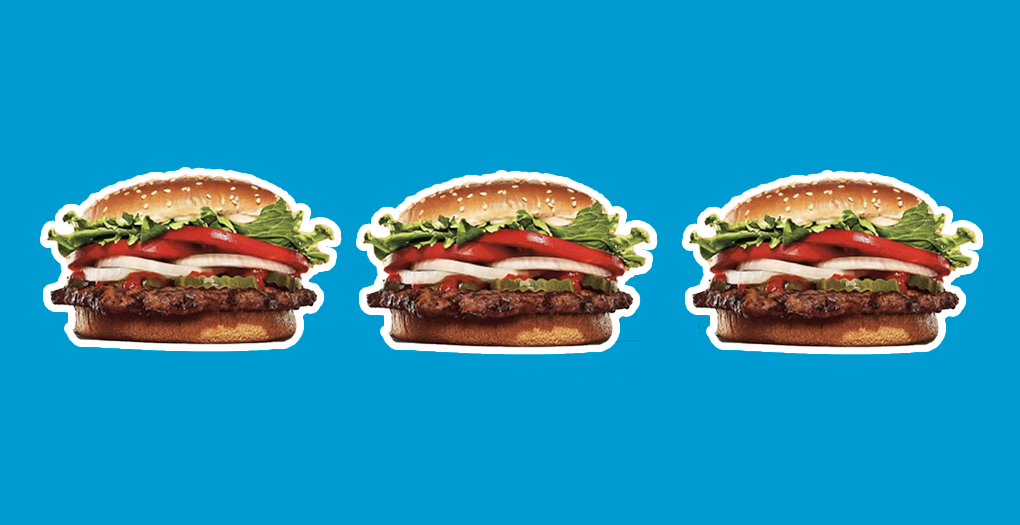
By the Numbers: Greenwashing Class-Action Lawsuits
TINA.org has tracked more than 150 lawsuits alleging greenwashing.
Lawsuits challenge the amount of meat and toppings depicted in fast-food marketing images.
This article highlights a trend in class-action litigation as identified by our Class-Action Tracker. Thus the name of this feature, CATrends. (Apologies if you were expecting funny cat videos.)
Consumers are fed up with fast food that looks nothing like the food they see in ads and are suing chains for false advertising. The success rate of these kinds of cases, however, isn’t great. But there’s a new twist with some recent deceptive fast-food advertising lawsuits that might tip the scales in consumers’ favor.
Rather than focus on how mouth-watering a burger or other menu item looks in an ad – which has not proven to be a winning legal strategy with most courts taking the position that a reasonable consumer knows the food they order will generally fail to live up to the expectations set in the ad – these cases scrutinize the amount of meat and toppings depicted in fast-food marketing images on company websites and on in-store menu boards, among other places. (This is similar to the lawsuits that had challenged Subway’s “footlong” sandwiches claims.)
A complaint against Burger King, for example, alleges that the burgers in its ads are about 35 percent larger and contain more than double the meat than the burgers that are actually served. A lawsuit against Taco Bell, meanwhile, claims its Crunchwraps and Mexican pizzas contain less beef and other ingredients than advertised.

Some of the lawsuits describe the lengths the fast-food chains go to in order to make the meat in their burgers and sandwiches look bigger in ads.
According to the complaints, both Wendy’s and McDonald’s undercook the beef patties they use in their ads to make them appear 15 to 20 percent larger, and Arby’s pushes all of the meat to the front of its sandwiches to trick consumers into thinking they’re getting double the meat than they actually are.

The lawsuits, which were all filed in the last 18 months by the same law firm, accuse the fast-food chains of deceiving customers at a time when “inflation, food, and meat prices are very high and many consumers, especially lower income consumers, are struggling financially.”
All of the lawsuits are pending. And some of the chains are finding that they aren’t going away as easily as they might have hoped.
For example, after Burger King filed a motion to dismiss the complaint against it, a federal court last month dismissed claims based on out-of-store ads, but allowed claims based on in-store menu boards to move forward.
Find more of our coverage on fast food here.
TINA.org has tracked more than 150 lawsuits alleging greenwashing.
Class-action lawsuits target human and environmentally-friendly claims.
Lawsuits allege brownie brands and others lack the essential dairy ingredients to call their products fudge.


